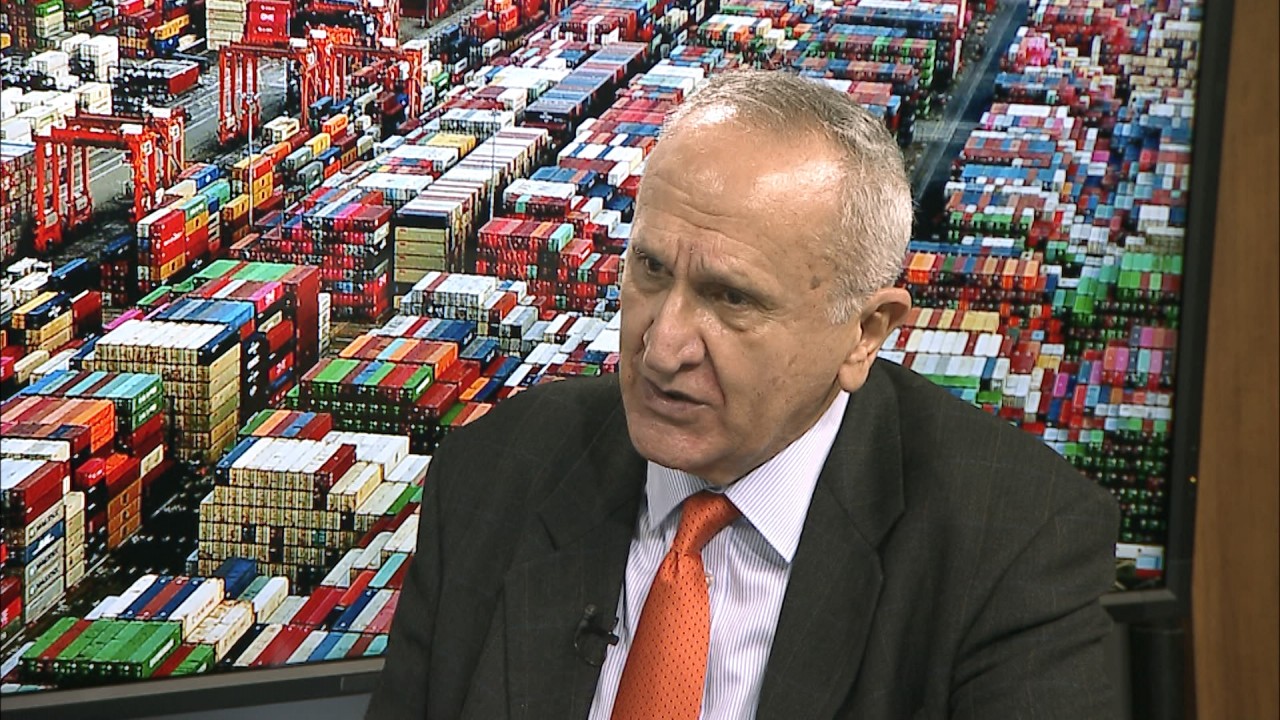
WTO says Donald Trump’s tariffs on Chinese goods violate global trade rules
- For practical purposes, however, the decision may have little binding effect
- US Trade Representative Robert Lighthizer says the ruling is evidence of the WTO’s inability to hold China to account
The World Trade Organisation said on Tuesday that US tariffs on Chinese goods, imposed by President Donald Trump in his trade war with Beijing, violated international rules.
A panel of three trade experts made the ruling after US President Donald Trump unilaterally imposed tariffs on more than US$350 billion worth of Chinese imports, which he said was in response to Beijing’s unfair trade practices.
While the ruling bolstered China’s position in the trade war, it may have little binding effect. In December, Trump blocked all new appointments to the WTO’s dispute resolution court, making it effectively non-functional.
Terry Haines of the Washington-based analysis firm Pangaea Policy called Tuesday’s ruling “meaningless”.
“It’s a mistake to think of today’s ruling as an international rebuke,” he said. “It’s more like a League of Nations scenario, with the failing international body trying to remain relevant while its members pretend to pay it heed but freely ignoring its rules and charting their own paths.”

11:17
WTO nominee vows to bring US and China to negotiating table
James Bacchus of the University of Central Florida, who twice was chief judge of the WTO Appellate Body, said: “The ruling by the panel is correct. Unfortunately, in the absence of the Appellate Body, the United States can simply appeal this ruling into the void, and the members of the WTO will be unable to adopt the panel report.”
“However, China already has retaliated against this US measure with trade sanctions on other US products prior to this ruling, so denial of the right to an appeal in this instance may make no practical difference,” he added.
Claire Reade, former assistant US trade representative, at Arnold & Porter Daye Scholer agreed that the panel’s ruling would have minimal effect.
“This decision will create a legal talking point for China but seems unlikely to have much practical impact,” she said. “With the US embroiled in election politicking, I would think Trump might be focused on stock market stability, which would argue against a potentially disruptive action like pulling out of the WTO.”
Beijing extends tariff exemptions on 16 US goods at importers’ request
China had asked for a WTO investigation in April 2018, and two additional cases followed as the US added duties to more Chinese goods.
In response, the US said that China’s policies and practices amounted to “state-sanctioned theft” and misappropriation of US technology, intellectual property and commercial secrets. The duties “were justified” as “measures necessary to protect US public morals, the US argued.
The trade experts found that, most fundamentally, the US had not explained how the additional tariffs were a justifiable exception under a WTO clause that allows countries to take emergency trade actions “to protect public morals”.

The WTO panellists said the US “had not provided an explanation” to help them understand the relationship between the additional duties and the public morals objective it was seeking to maintain.
The WTO also found that the additional duties were inconsistent with the WTO’s most favoured nation principle and exceeded the maximum tariff rates for the targeted products agreed to by the US.
The panel also said that the trade negotiations by the two countries could not be considered a “settlement of the matter” to take this dispute outside the WTO, as the US argued.
China to use US$2.4 billion WTO tariffs as ‘bargaining chips’ in talks
Trump has repeatedly criticised the trade organisation, saying it treating the US unfairly. But at a press conference on September 7, he said the WTO has been “very nice to us lately, I will say that – amazingly”.
“We never used to win anything at the World Trade,” he said. “Now, all of a sudden, we’re winning a lot of cases. We just won US$7 billion as a case. And they’re talking to us much differently than they used to because if they don’t shape up, we’re going to ship out.”
When asked about the WTO decisions on Tuesday, Trump said he was “not a big fan” of the organisation and would have to examine the issue.
The US trade representative, Robert Lighthizer, said earlier in the day that the ruling was evidence of the WTO’s ineffectiveness.

“This panel report confirms what the Trump administration has been saying for four years: the WTO is completely inadequate to stop China’s harmful technology practices,” Lighthizer said in a statement.
“Although the panel did not dispute the extensive evidence submitted by the United States of intellectual property theft by China, its decision shows that the WTO provides no remedy for such misconduct.
“The United States must be allowed to defend itself against unfair trade practices, and the Trump administration will not let China use the WTO to take advantage of American workers, businesses, farmers and ranchers.”
Lighthizer added that the ruling had no effect on the phase one trade deal.
Chinese Embassy in the US, in a Tuesday tweet, said “we hope that the US would respect the ruling and take practical actions to maintain the multilateral trading system.”
Additional reporting by Owen Churchill

